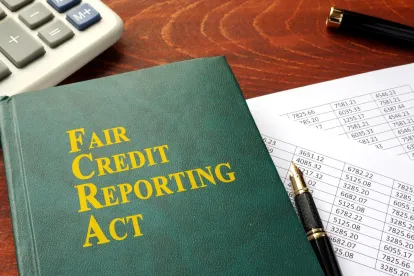In a recent case from the Eastern District of Pennsylvania[1], the court provided some helpful clarifications regarding the reinvestigation obligations of a consumer reporting agency (“CRA”) under the Fair Credit Reporting Act (“FCRA”). Section 611(a) of the FCRA requires a CRA to conduct a reasonable reinvestigation of any item of information in a consumer’s file if the consumer alleges the item to be inaccurate.
In this case, a home security company called Safe Home pulled a credit report on the plaintiff. Not only did he not authorize Safe Home to do so, he explicitly instructed them not to. The plaintiff noticed the inquiry on this credit report and disputed the inquiry with TransUnion (“TU”), the CRA that had prepared the credit report. When plaintiff called TU to dispute, they told him they could not remove the inquiry and to call Safe Home. When plaintiff then wrote to TU, TU responded with a form letter not tailored to the facts of plaintiff’s dispute. Discovery then revealed that TU had taken the same position with numerous consumers.
While TU conceded that the plaintiff had lodged the dispute and that it conducted no reinvestigation, TU asserted several arguments as to why it was not obligated to do so. Three of TU’s arguments and the court’s responses are summarized below.
TU was not obligated to reinvestigate because plaintiff’s file was accurate. First, TU argued that an inquiry in a consumer’s file “is merely a factual notation that a user . . . received [a TU credit report] about a consumer on a specific date.” Therefore, TU argued, such an inquiry is accurate if the inquiry in fact occurred and TU subsequently reported that it occurred. In its view, the Safe Home inquiry on plaintiff’s file necessarily was “accurate” because the inquiry indeed occurred. However, the court concluded that TU had an “artificially narrow view of its obligations” under §611, one that is inconsistent with the text and structure of §611, and Third Circuit precedent. The court pointed out that TU’s argument was based on the assumption that inquiries were neutral facts when in reality, they often have negative effects on consumer’s credit scores. As a result, the court was persuaded by a recent Ninth Circuit decision concluding that an item of information on a consumer’s credit report is “inaccurate” if it either is “patently incorrect” or is “misleading in such a way and to such an extent that it can be expected to adversely affect credit decisions.”[2] Therefore, while the inquiry in this case was technically accurate, it was misleading and, therefore, inaccurate.
TU did not have to reinvestigate because plaintiff did not preliminarily “show” an inaccuracy. TU then argued that a CRA’s duty to reinvestigate a consumer’s dispute is not triggered until the consumer makes a preliminary showing that the disputed information is inaccurate. The court found that this allocation of the burden to the consumer is not supported by the text of §611, the statute’s structure, or Third Circuit precedent, and that as long as the accuracy of some piece of information in the consumer’s file is disputed directly with a CRA, a consumer has fulfilled his duty to trigger the CRA’s reasonable reinvestigation obligation.
TU’s duty to reinvestigate is limited to information provided by furnishers. TU argued that the duty to reinvestigate pursuant to §611 is triggered only when the information in dispute is supplied to a CRA by an entity classified as a “furnisher.” TU based its argument on the use of the term “furnisher” within the subheadings in §611; specifically, TU argued that because §611(a)(1), titled “Reinvestigation required,” is followed by (a)(2), titled “Prompt notice of dispute to furnisher of information,” a CRA’s duty to reinvestigate is limited to disputes of information supplied by furnishers. The court did not find that argument persuasive, citing Supreme Court precedent holding that headings are useful only when they shed light on an ambiguous word or phrase, not for interpretive purposes generally.[3] Moreover, §611 explicitly grants consumers the right to dispute the “completeness or accuracy of any item of information contained in a consumer’s file,” subject to two exceptions not relevant in this case. The court found that this broad language unambiguously refuted TU’s argument.
Having found plaintiff to have satisfied the requirements for class certification and TU’s arguments to be lacking, the court granted class certification. The lesson from this case for CRAs is that they need to conduct reinvestigations on all information in a consumer’s file if a consumer submits a dispute or risk class action litigation. A CRA is in a much better position arguing that a particular reinvestigation was reasonable (even in light of bad facts) than justifying why it never conducted a reinvestigation at all.
[1] Norman v. Trans Union, Inc., No. 18-5225, 2020 U.S. Dist. LEXIS 146642 (E.D. Pa. Aug. 14, 2020).
[2] Shaw v. Experian Information Solutions, Inc., 891 F.3d 749 (9th Cir. 2018).
[3] Pennsylvania Dep’t of Corr. v. Yeskey, 524 U.S. 206 (1998).




 />i
/>i

